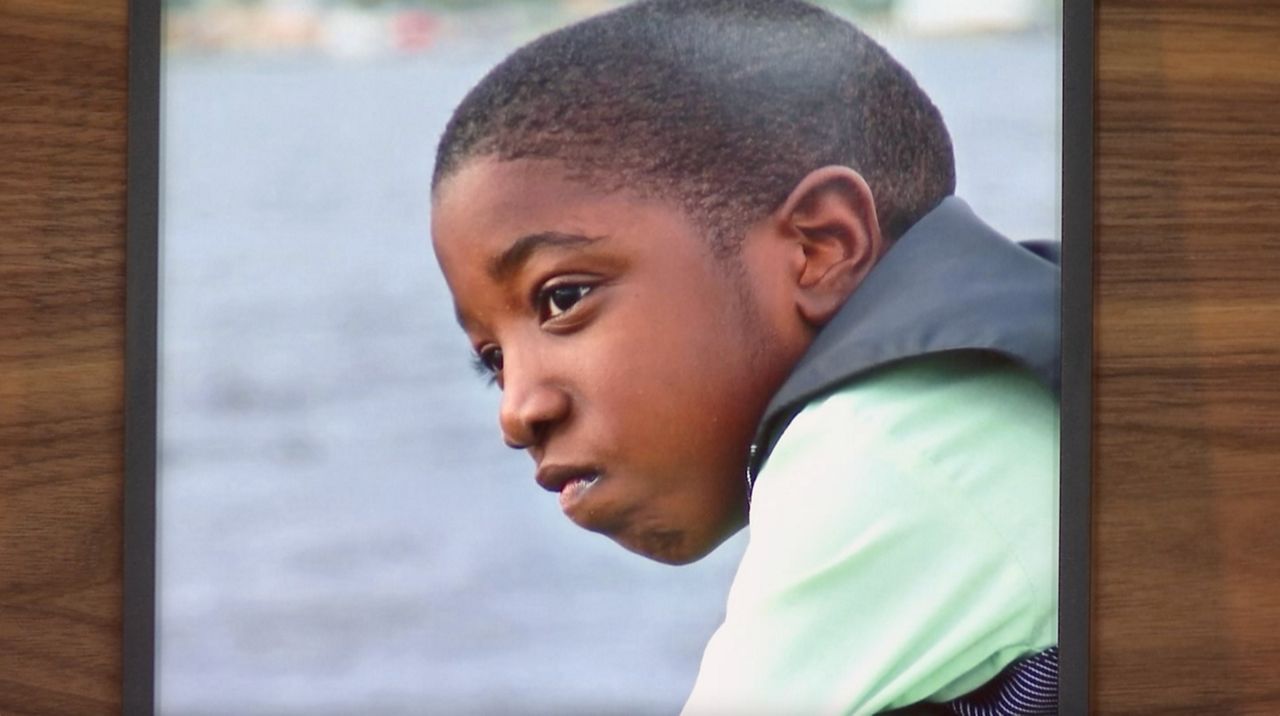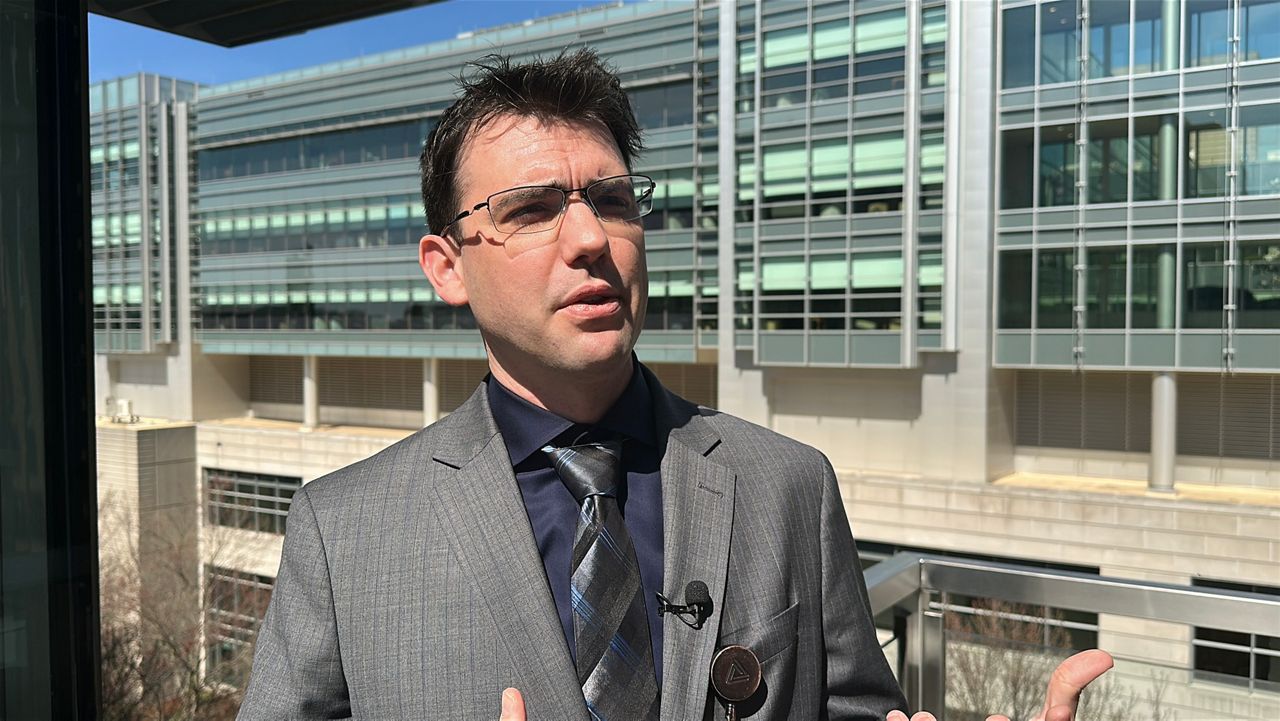An Ohio man calls himself a walking testament to the power of modern medicine.
Chris Biggar was diagnosed with Stage 4 metastatic colorectal cancer in the fall of 2022.
“I moved down here for work and suddenly, I can’t do it anymore. My purpose was taken away. When you’re doing that, life gets confusing,” Biggar said.
The 35-year-old said he moved to North Carolina with his girlfriend, Samantha Davidson, for a new job opportunity in 2022.
After landing a gig with Open Book Extracts, a hemp company, he was excited to start a new chapter after years of working in the retail world. Not even a few months into their move, Biggar faced excruciating abdominal pains.
Biggar said he has a strong mind-body connection and felt something wasn’t right inside him. Scans revealed a mass on his liver and doctors later revealed an advanced stage of colon cancer which spreads beyond the colon called metastatic colon cancer. The September 2022 diagnosis rocked his world but didn’t shake his character.
“It basically came down to all that you do is fight,” Biggar said.
As awareness grows, so too does the concern for this form of cancer. An article published in the Journal of the American Medical Association, projected “colorectal cancer will be the leading cause of cancer deaths for those ages 20-49” by 2030.
Biggar did not want to become a statistic.
“I never stopped believing that I was going to get through it,” Biggar said.
Not only was the patient diagnosed with an aggressive form of cancer. Biggar said he learned the type of colorectal cancer carried a mutation known as microsatellite instability.
Biggar’s oncologist Dr. Nicholas DeVito described why the mutation would affect their treatment options.
“I also explained to him why chemotherapy would not be the best choice,” DeVito said. “When they do, we can often forego chemotherapy entirely like we did with Chris.”
In layman’s terms, cancer cells with MSI replicate errors in DNA sequencing resistant to chemotherapy yet susceptible to immunotherapy.
“What I really like to do with patients in this case is educate,” DeVito said. “The benefit to having microsatellite cancers like the one Chris has is they can’t repair their own DNA.”
Educating the public is one of DeVito’s reasons for practicing gastrointestinal oncology.
“I was drawn to oncology because I was interested in immunotherapy and turning the immune system against cancer,” DeVito said.
The doctor said only about 5% of patients with metastatic colon cancer carry this mutation. It’s why immunotherapy was an option the doctor said he couldn’t wait for this particular patient to explore.
“The phrase I’ve used many times with Chris is that patients like him are the beacon on the hill,” DeVito said.
The Duke Cancer Center oncologist recommended a form of immunotherapy called immune checkpoint inhibitors. He said this immunotherapy teaches a person’s immune system to recognize and mobilize against the cancer.
“Think of it as taking the brakes off of his T cells. They allow it to attack the cancer,” DeVito said.
These immune checkpoint inhibitors use infusions of lab-designed monoclonal antibodies to spot and block the cancer tumor cells from tricking the body’s immune response into thinking it is safe.
“'The Terminator' is the way I think of my immune system. We kill cancer, that’s what we do,” Biggar said.
By all accounts, Biggar’s body responded well to the therapy.
Davidson said upon learning what her boyfriend faced she was willing to do whatever it took to keep him alive, given her father died of the disease about five years ago.
Biggar said he asked her to become his main caregiver during this time. Davidson, 36, agreed.
“It was hard, but I was happy to do it. I love him. You know. We just got through it,” she said.
The patient-turned-survivor credits DeVito for the idea of giving immunotherapy a shot.
“The Michael Jordan of immuno-oncologists,” Biggar said.
By late spring of 2023, the Ohio native said tests run at the Duke Cancer Center could no longer detect any cancer in his body.
“Cancer got tired, and my body was not tired. My body wanted to fight, and we fought,” Biggar said.
And they won. Now he celebrates survivorship through advocacy. Biggar organized a Walk to End Colon Cancer event in Cleveland, Ohio last October.
The same medal given to participants now hangs in his apartment.
“It will always be there, and I love it,” Biggar said
Raising money for life-saving cancer research is something he will not be quiet about.
“I am a person of passion. When I am passionate about something I don’t recommend even trying to stop me because you are just going to waste your time,” Biggar said.
He's a fighter with a story too inspiring to keep to himself.
“I don’t have a choice. I have to,” he said.
Photos taken throughout his treatment revealed Biggar also did not lose hair but at times lost a fair amount of weight. However, the long-lasting effects of the immunotherapy have forced him to take a regular thyroid prescription.
Biggar is now mentoring multiple younger people through their cancer while working with organizations doing the same.
His last immunotherapy appointment will be this coming September. He said at the conclusion of this final session then he will go on surveillance.
DeVito said there will be a clinical trial for the 95% of patients unlike Biggar to see if they too can benefit from immunotherapy as a first line of treatment to cancer.
The American Cancer Society gives the following bullet points to parents who are looking for ways to talk to their child about their cancer diagnosis:
Be open and honest
Make descriptions plain
Gently set expectations for how cancer impacts them
What happens during treatment
Make children feel comfortable asking questions









